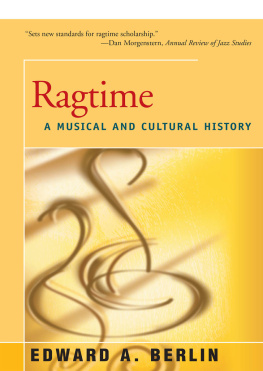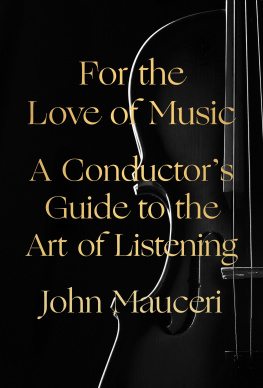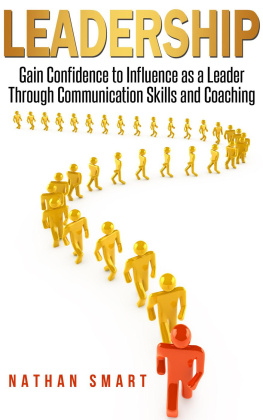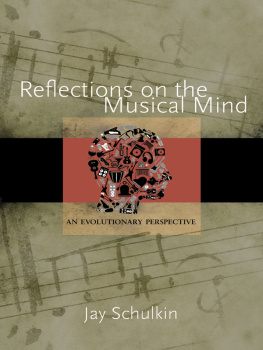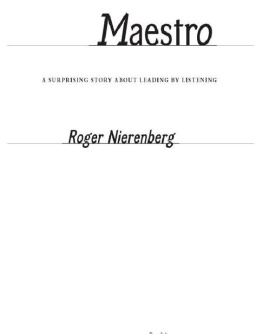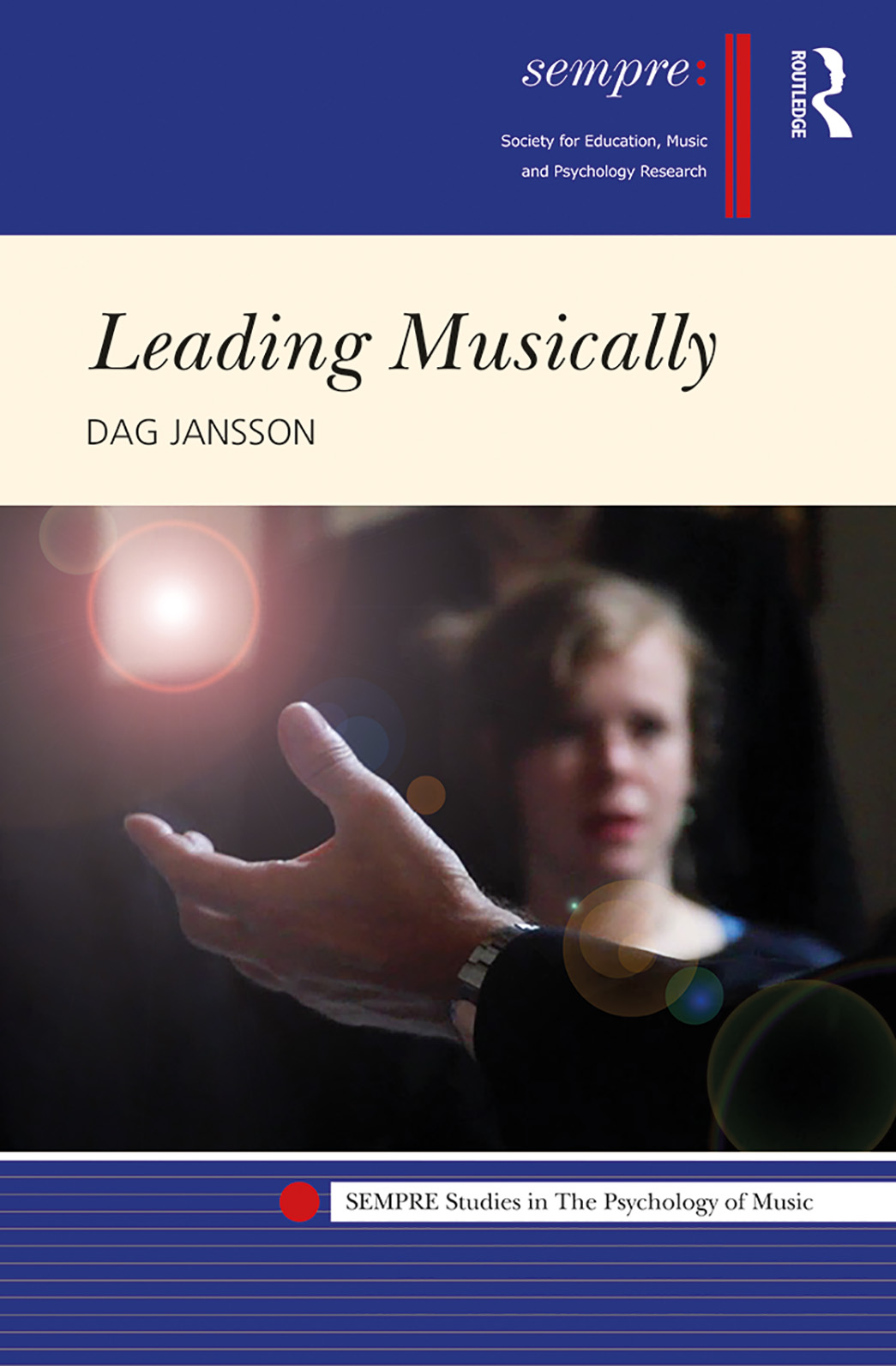
Leading Musically
Musical leadership is associated with a specific professionthe conductoras well as being a colloquial metaphor for human communication and cooperation at its best. This book examines what musical leadership is, by delving into the choral conductor role, what goes on in the music-making moment and what it takes to do it well. One of the unique features of the musical ensemble is the simultaneity of collective discipline and individual expression. Music is therefore a potent laboratory for understanding the leadership act in the space between leader and team. The musical experience is used to shed light on leading and following more broadly, by linking it to themes such as authority, control, empowerment, intersubjectivity, sensemaking and charisma. Jansson develops the argument that musical leadership involves the combination of strong power and deep sensitivity, a blend that might be equally valid in other leadership domains. Aesthetic knowledge and musical perception therefore offer untapped potential for leadership and organisational development outside the art domain.
Dag Jansson is a choral conductor and associate professor of arts management at Oslo Business School, Norway. He earned his PhD at the Norwegian Academy of Music, a master degree in musicology at the University of Oslo and an MBA from INSEAD in France. Prior to his music career, he was the global leader of a telecom and media consulting practice.
SEMPRE Studies in The Psychology of Music
Series Editors
Graham Welch
Institute of Education, University of London, UK
Adam Ockelford
University of Roehampton, UK
Ian Cross
University of Cambridge, UK
The theme for the series is the psychology of music, broadly defined. Topics include (i) musical development at different ages, (ii) exceptional musical development in the context of special educational needs, (iii) musical cognition and context, (iv) culture, mind and music, (v) micro to macro perspectives on the impact of music on the individual (from neurological studies through to social psychology), (vi) the development of advanced performance skills and (vii) affective perspectives on musical learning. The series presents the implications of research findings for a wide readership, including user-groups (music teachers, policy makers, parents) as well as the international academic and research communities. This expansive embrace, in terms of both subject matter and intended audience (drawing on basic and applied research from across the globe), is the distinguishing feature of the series, and it serves SEMPREs distinctive mission, which is to promote and ensure coherent and symbiotic links between education, music and psychology research.
Listening in Action
Rebecca M. Rinsema
Body, Sound and Space in Music and Beyond
Multimodal Explorations
Edited by Clemens Wllner
Research-Creation in Music and the Arts
Towards a Collaborative Interdiscipline
Sophie Stvance, Serge Lacasse
Musical Creativity Revisited
Educational Foundations, Practice and Research
Oscar Odena
Leading Musically
Dag Jansson
For a full list of recent titles, please visit https://www.routledge.com/music/series/SEMPRE
First published 2018
by Routledge
2 Park Square, Milton Park, Abingdon, Oxon OX14 4RN
and by Routledge
711 Third Avenue, New York, NY 10017
Routledge is an imprint of the Taylor & Francis Group, an informa business
2018 Dag Jansson
The right of Dag Jansson to be identified as author of this work has been asserted by him in accordance with sections 77 and 78 of the Copyright, Designs and Patents Act 1988.
All rights reserved. No part of this book may be reprinted or reproduced or utilised in any form or by any electronic, mechanical, or other means, now known or hereafter invented, including photocopying and recording, or in any information storage or retrieval system, without permission in writing from the publishers.
Trademark notice: Product or corporate names may be trademarks or registered trademarks, and are used only for identification and explanation without intent to infringe.
British Library Cataloguing-in-Publication Data
A catalogue record for this book is available from the British Library
Library of Congress Cataloging-in-Publication Data
A catalog record for this book has been requested
ISBN: 978-1-138-05878-1 (hbk)
ISBN: 978-1-315-16399-4 (ebk)
Typeset in Times New Roman
by codeMantra
For Helle
The title of this book is intentionally ambiguous. Clearly, its about music, but in what way? Its also about leadership, but whats the connection to music? Leading music is concrete enoughits about organising sound and ensuring cohesion in an orchestra, a choir, a rock band or any other musical ensemble. The conductor role is the most iconic manifestation of leading music. Everyone has some idea about what a conductor is, some understand what a conductor does, but few have reflected on what its really about, why we need it and what it takes to do it. One aim is to deep-dive into the conductor role, exploring it on its own terms, as well as discussing it in light of leadership and organisational theory.
Having come to grips with leading music, what more is implied by leading musically? Is it possible to lead music in an un-musical way, and is it possible to lead something other than music in a musical way? My point of departure is that there is, in fact, something about engaging with music that takes a special position in human life, that music has certain qualities which represent human communication and interaction at its very best. The term in concert in the title of the concluding chapter also has a double meaning. Beyond denoting a musical performance, it also signals a level of cohesion arising from a concerted effort. By engaging in a musical way, any type of organisation might hope to be in concert. The second aim is therefore to explore these qualities, and then reapply the insights in the context of organisations and leadership at large.
As a scholarly project, there are some challenges with this approach. By exploring the intersection of two different academic disciplinesorganisation studies and leadership on one hand, and music, musicology and conducting on the otherI expose myself to the spotlight from two angles. I admit up front that I am sceptical towards importing an organisational mindset into an aesthetic realm, and when drawing on extant research, it is more critique than application of theory. Music and musicology, including a range of sub-fields such as music pedagogy, music sociology and music cognition, is an even more diverse field than organisational and leadership studies. There is probably little agreement as to what philosophical foundation and which research approaches are most relevant to explore musical leadership. There is a risk that neither constituency is fully satisfied. However, that risk is worth taking, because there is no way around it. There is no single discipline that can claim sole ownership of something as complex as musical leadership, in its literal as well as metaphorical sense.
Why did this book have to be written? The simple answer is that I have found myself in the midst of this professional arena for many years, first within a business settingthen music. For me, the notion of musicality has always been central to the human condition. A more complex answer is that the musical experience is a way of sensing and understanding what leadership and organisational theory is in great need of, and to which prominent scholars have contributed over the last couple of decades. I join this emerging tradition, by looking specifically at conducting and choral singing.
Next page


